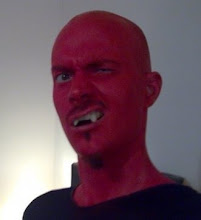Soul Survivors
Casey Affleck (Sean), Wes Bentley (Matt), Eliza Dushku (Annabel) and Melissa Sagemiller (Cassie) are firm friends, and as Cassie is off to college they all decide to tag along for the journey. Cassie is now with Sean, but used to go out with Matt who still has a crush despite being with Annabel.
When they split from college on Cassie’s first night to go to a goth club, Cassie and Matt are caught in an elicit kiss and the quartet row in the car journey home, with a car crash before they make up resulting in Sean’s death.
Cassie is obviously upset and starts seeing things, people who seem to be following her and exam questions that directly relate to the events of the crash and the like. Luke Wilson crops up as the kindly priest Jude, but he can’t stop Cassie’s hallucinations worsening, to the point that she dreams of sleeping with Sean only to find herself waking up next to Matt.
When she sees and speaks to Sean himself she wonders whether she’s losing the plot - more people start acting strangely, Jude turns out to have died in 1981, a man in a mask and a long-haired type in denim from the goth club keep appearing and matt and Annabel become increasingly exasperated with her behaviour.
Spoiler - it was all a dream! She was dead all along! Except Sean was alive and manages to bring her back. Despite the solid cast (although Sagemiller seems to have been banished to TV purgatory) the film is pretty dire, lacking in any scares with cheesy music more suited to a fairytale than teen horror flick and saddled with a plot that is about as obvious as possible without actually telling you what’s going on, its saving grace is having Deftones play over the end credits.
It’s hard to understand how this was made in the first place as it would be quite a task to make anything of the source material, but this was released shortly after the first Final Destination and so supernatural teen fodder would have been in high demand.
Tellingly writer/director Stephen Carpenter hasn’t made anything since this crushingly dreary chiller.
[Rec]2
Following on immediately after the first film, this sequel to the scary Spanish zombie/infected genre entry inevitably loses some of the impact of the first due to the lack of surprise at the infected populating the apartments in the quarantined building. As with the original the action is all conveyed through first person camera viewpoints, in this case the helmet-mounted cams of a swat team and hand-held machine of a trio of teens replacing the TV journalist’s camera from Rec.
We follow the swat team as they escort a government representative as he searches for a cure, only for things to unsurprisingly go quickly and nastily wrong. The teens enter later. Attracted by the forbidden they enter the building through the sewers, meeting up with a fireman searching for his colleagues and the father who had left the building to fetch medicine for his daughter who was running a fever in the first film. The teens quickly regret their rashness as the inhabitants emerge and there follows lots of running, shouting and darkness illuminated only by night vision as the newcomers’ numbers dwindle and those of the infected increase.
Whilst the screaming and running possessed create lots of tension and jump-scares, Rec2 doesn’t move on enough from the original to stand out. Though the final scene’s set-up for a possible sequel could open up the story to potentially move forward, this sequel only offers more of the same, good as that is. A missed opportunity.

